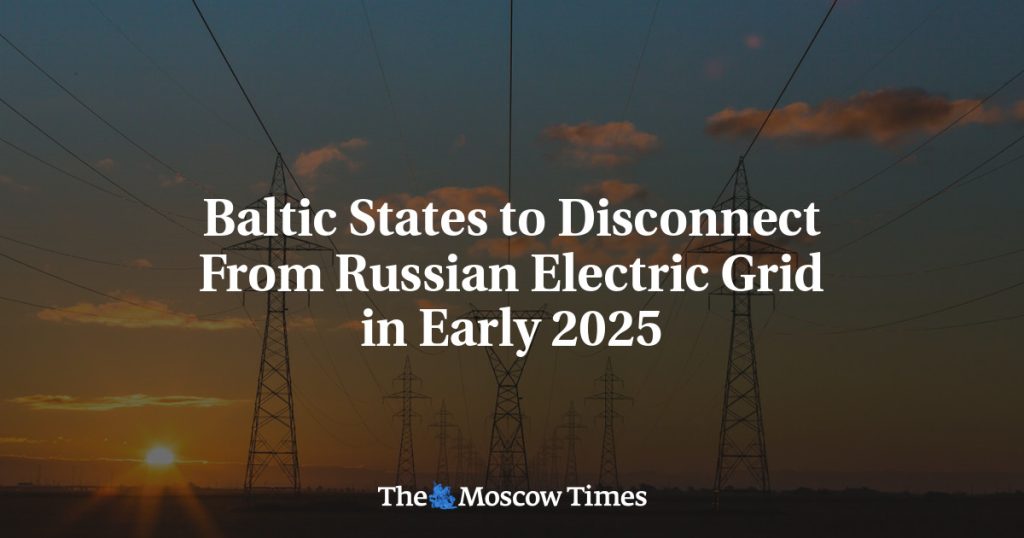Estonia, Latvia, and Lithuania have confirmed that they will disconnect their electrical grids from the Russian and Belarussian system (BRELL) in February next year, ending a nearly 20-year desynchronization process. The Baltic states will join the Continental European (UCTE) grid on February 9, 2025, one day after disconnecting from BRELL. Decoupling from the Russian and Belarussian grid, which is largely managed by Moscow, has been a strategic objective for the Baltic nations since 2007 due to concerns about electricity dependence on Russia posing a threat to their national security. Energy customers are not expected to be impacted by the switch.
Estonia, Latvia, and Lithuania are currently the only EU member states not connected to the UCTE grid, as they were integrated into the Soviet power network after being annexed as “constituent republics” by the U.S.S.R. during World War II. In 2018, the Baltic nations signed a deal with the European Commission and Poland to upgrade their grid infrastructure and join the UCTE. The agreement involved using Lithuania’s existing LitPol electricity link with Poland, as well as a new direct cable beneath the Baltic Sea. This required the Baltic states to decouple from Russia by 2025, and following Russia’s invasion of Ukraine in 2023, the prime ministers of the Baltic nations agreed to accelerate the decoupling from BRELL.
The total cost of switching to the UCTE grid is projected to be 1.6 billion euros, with three-quarters of the funding provided by the EU. The Kaliningrad region, a Russian exclave located between Lithuania and Poland, has prepared for the switch by building new gas power stations. The decoupling from the Russian and Belarussian grid will mark the end of a long-standing process of desynchronization, with the Baltic states finally connecting to the Continental European grid. The Baltic nations view this move as a significant step towards enhancing their energy security and reducing their dependence on Russia for electricity.
The switch to the UCTE grid is a key milestone in the Baltic states’ efforts to strengthen their energy independence and minimize the risks associated with reliance on Russian electricity. The desynchronization process, which has been ongoing for nearly two decades, will be completed in early August when the Baltics formally inform Russia and Belarus of their decision to disconnect from BRELL. Despite concerns about potential disruptions or impacts on energy customers, officials have assured that the switch will not cause any significant issues. The Baltic states’ decision to decouple from the Russian and Belarussian grid reflects their commitment to ensuring their national security and reducing vulnerabilities related to energy supply.
By joining the UCTE grid and disconnecting from BRELL, Estonia, Latvia, and Lithuania are taking a major step towards aligning their energy infrastructure with European standards and reducing their reliance on Russian-controlled networks. The funding provided by the EU and the agreements reached with Poland have been crucial in facilitating this transition, which has become even more urgent in the wake of geopolitical events such as Russia’s invasion of Ukraine. The successful implementation of the switch to the UCTE grid will not only enhance the energy security of the Baltic nations but also strengthen their position within the broader European energy market. Overall, the decoupling from the Russian and Belarussian grid represents a significant milestone in the Baltic states’ efforts to enhance their energy independence and ensure a more diversified and secure energy supply for their citizens.


